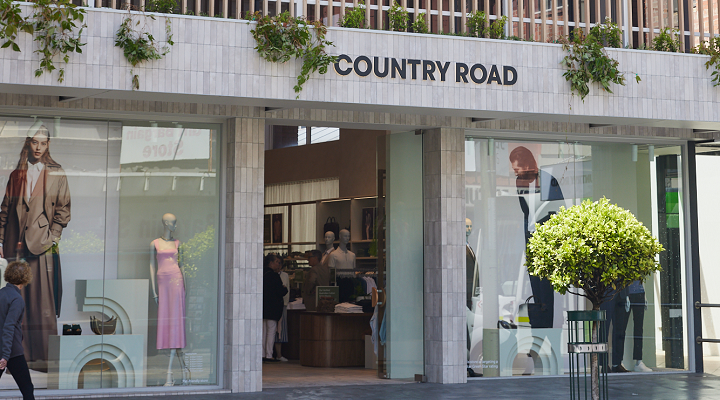Fashion brand Country Road is looking to inject another $500,000 into businesses working to mitigate the impact of climate change this year, following the launch of its Climate Fund last October. Now in its second year, the fund aims to deliver $1.5 million in grants over the course of three years to companies that are reducing greenhouse gas emissions and building Australia’s climate resilience across a number of key pillars: biodiversity, circularity, technological innovation, and supporti
rting indigenous-led projects and partnerships.
Country Road’s brand sustainability manager Erika Martin told Inside Retail that the project, which delivered around $550,000 across last year’s winners, was designed to bridge the financial gap for smaller businesses working to improve the Australian fashion industry.
“We’ve had positive feedback from two of our year-one projects already that this grant and partnership with Country Road has opened doors for additional funding and partnerships that they wouldn’t have been able to access,” Martin said.
This year, the brand is “looking to support a broad range of businesses, working across all different stages of the fashion value chain. If the project is supporting positive climate outcomes and meets at least one of the pillars, we are keen to receive an application.”
Impact creators
Trust for Nature, an organisation that aims to preserve and restore the forests, coasts and landscapes of Victoria, was among last year’s winners. And, according to CEO Corinne Proske, the funding from Country Road has been “catalytic” for the business.
According to Proske, winning the grant has already helped the business to attract additional funding from the Federal and Victorian Governments, as well as co-investment from The Nature Conservatory, which has added more than $1 million to its mission to save the critically endangered Plains-wanderer bird.
“On the ground, the grant has allowed us to work with landholders to reduce threats to Plains-wanderers, such as foxes, and remove weeds that slowly make the habitat less suitable for these birds,” Proske explained.
“We’re also working with traditional owners to help better manage these landscapes in the future.”
Another winner, Queensland’s Full Circle Fibres, aims to create fully traceable, transparent and ethical textile supply chains. The extra funding allowed the business to turn a “good idea” into a pilot that it is already learning from.
Founder and textile technologist Meriel Chamberlain said that the funding was instrumental in getting the business off the ground.
“Working on these things in practice takes time, but this is an opportunity to share widely that we are here, creating deep, lasting change, one step at a time, working toward local textile circularity,” Chamberlain said.
“It takes an opportunity like the [Country Road Climate Fund] to get it started and raise the process of what is possible and under our noses.”
And, according to Chamberlain, when it comes to making change: collaboration is key.
“Look to work with others where you already have experience of working well together, as trusted relationships help things keep going when unexpected surprises happen,” she said.
“Key opportunities”
Landcare Australia, based in Sydney, also received funding from Country Road last year, and is in the early stages of delivering a toolkit for wool and cotton growers to help them contribute to carbon capture on their properties by way of a biodiverse and ecological plant mix.
“[The funding] has given us the opportunity to engage with growers face-to-face in a workshop so that we could have detailed conversations about their needs and experiences,” Landcare Australia CEO Dr Shane Norrish said.
“The grant has also allowed us to identify several key themes of barriers to participation in the ‘green economy’ and environmental planting projects. We’re building a detailed understanding of the key opportunities to assist growers, as well as where they’re currently seeking information.”
According to Dr Norrish, it’s important for organisations seeking funding to understand their objectives properly, and to showcase, in a detailed way, what the long-term impact of their project will be.
It is also key to showcase innovation and what sets a project apart from the competition, Norrish explained.
Country Road’s Martin added that applicants should focus on project ideas that have the capacity to scale in the future.
“Ensure there is a clear link to positive climate outcomes and the nominated pillar,” she said.
“The challenge for us when assessing these projects is that there are so many worthy ideas and projects, but unfortunately we aren’t able to fund them all.”
Applications for the next phase of Country Road’s Climate Fund are now open.

